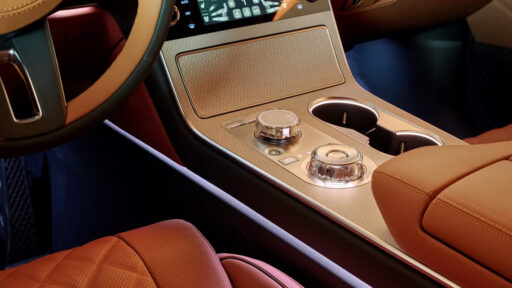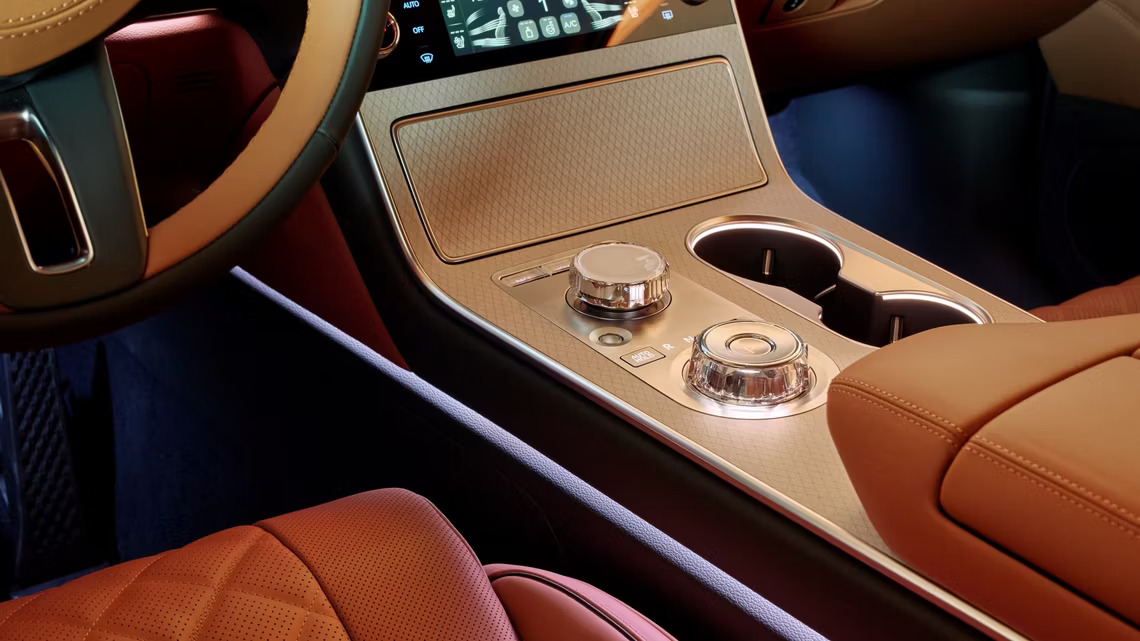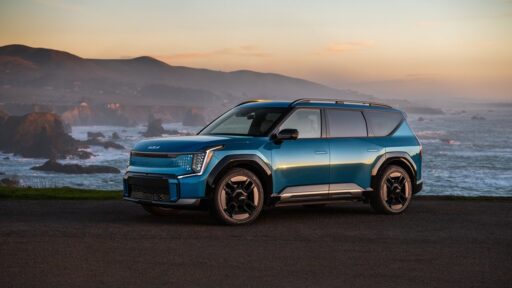Genesis, the luxury vehicle brand, continues to push the boundaries of automotive design with its innovative approach to materials and sustainability.
Known for its elegant use of leather, wood, and metal, Genesis is now introducing new materials to its vehicles that reflect a commitment to environmental responsibility.
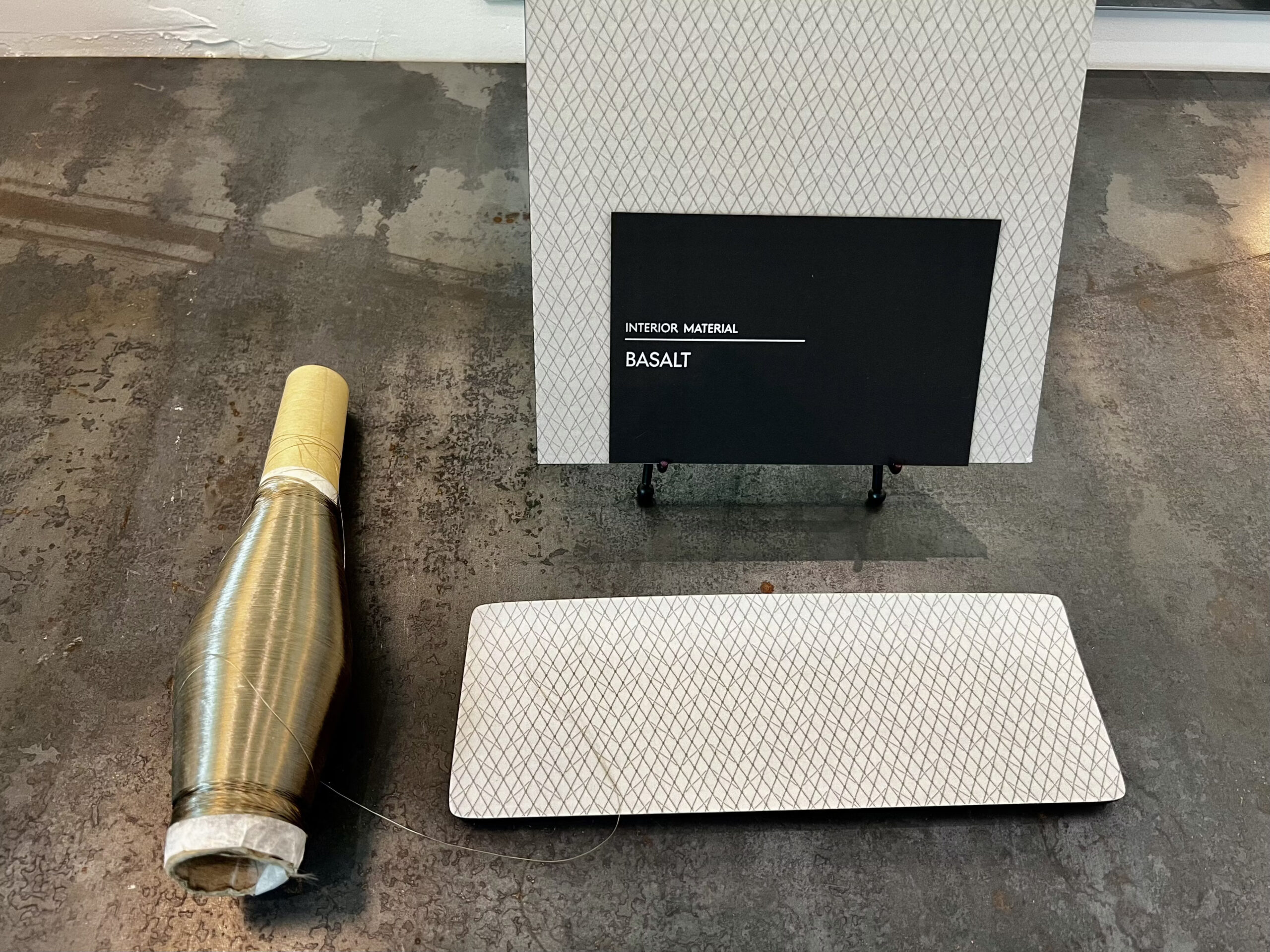
These efforts are part of Genesis’s broader strategy to distinguish itself from its Hyundai roots and establish itself as a leader in luxury and sustainability.
At a recent first drive event for the Genesis GV80 in Texas, Grace Kim, Senior CMF (Color, Material, Finish) Designer at Genesis Design North America, discussed the innovative design process. She explained how the team has transformed stone and old newspapers into stunning vehicle interiors, aligning with the brand’s carbon neutrality goals.
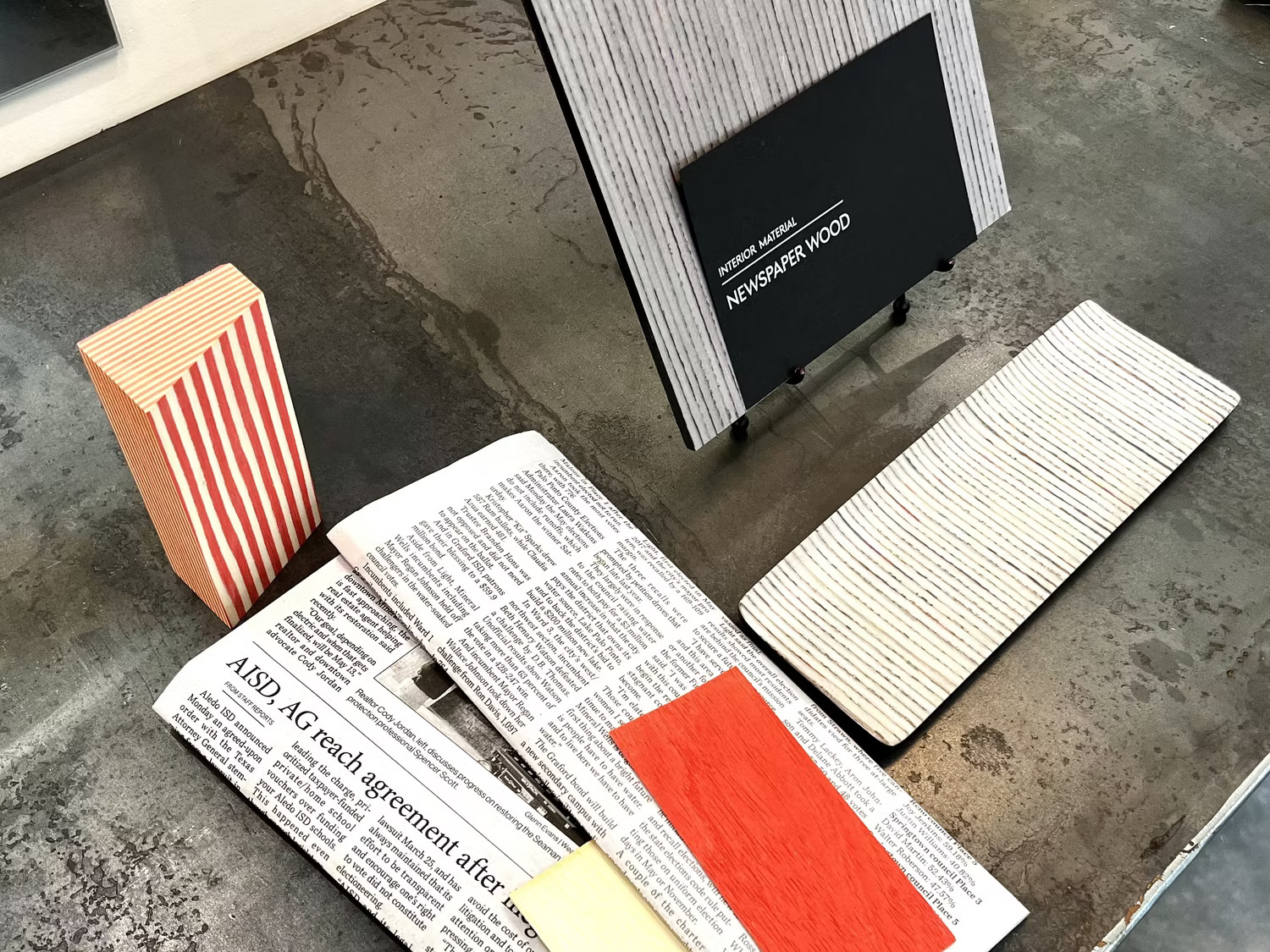
One standout material is “newspaper wood,” which debuted on the G90 sedan and is now featured in the GV80. “The newspaper wood not only aligns with Genesis’s goal of carbon neutrality but also addresses the primary concern of the CMF team,” said Kim.
Developed from discarded newspapers, this material presents an eye-catching striped pattern, with faintly visible text adding a unique element to the luxurious interior. This innovation reflects Genesis’s commitment to protecting natural resources and minimizing environmental impact.
Another creative material used by Genesis is forged wood varnish, crafted from wood scraps discarded by furniture companies. This upcycling approach not only reduces waste but also ensures high-quality design. “The effort by the Genesis Design Team showcases high-quality design while minimizing environmental impact by recycling discarded resources,” Kim explained.
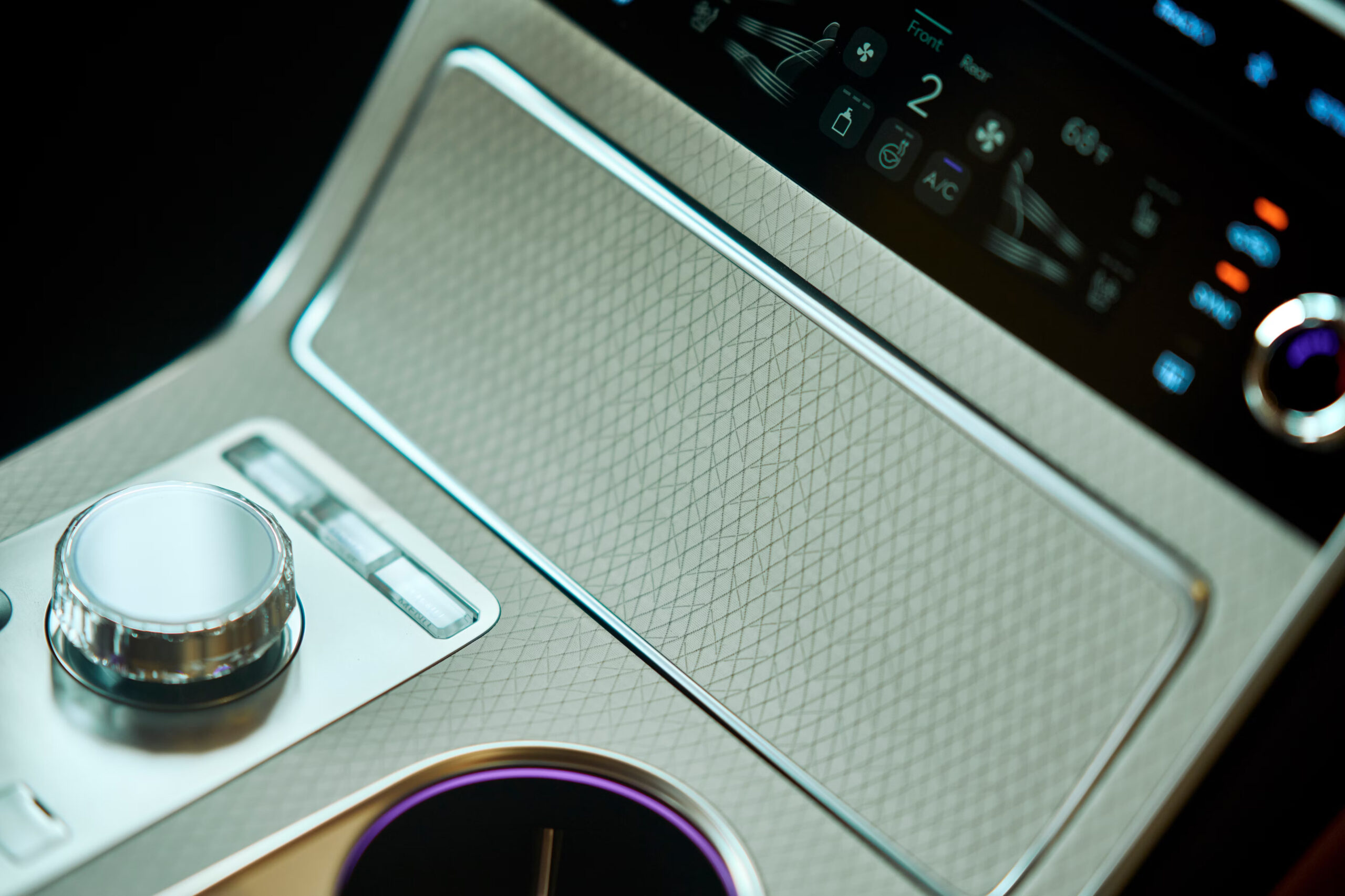
The brand’s forward-thinking design philosophy is further exemplified by its use of basalt fabric, a material traditionally used in construction. “The decision to use basalt fabric as a decorative garnish was driven by the desire to replace commonly used carbon fabric,” said Kim. By melting basalt rock and weaving it with recycled PET yarn, the team created a luxurious and sustainable fabric that aligns with their “Inspired by Nature” theme.
Genesis’s commitment to sustainability extends beyond material innovation. The brand aims to achieve carbon neutrality by 2035, incorporating sustainable ideas into both manufacturing processes and component materials.
This involves regular collaboration with research teams and institutes worldwide to develop new materials and predict future trends. “Material development can take at least two years, sometimes even more than five,” Kim noted, highlighting the foresight required to keep Genesis’s designs ahead of the curve.
By attending global trend exhibitions such as the Milan Furniture Fair and Maison&Objet, Genesis’s designers stay informed on changing trends, ensuring their vehicles’ interiors remain stylish and modern. This proactive approach helps each Genesis vehicle maintain a unique yet unified design, setting the brand apart in the luxury automotive market.
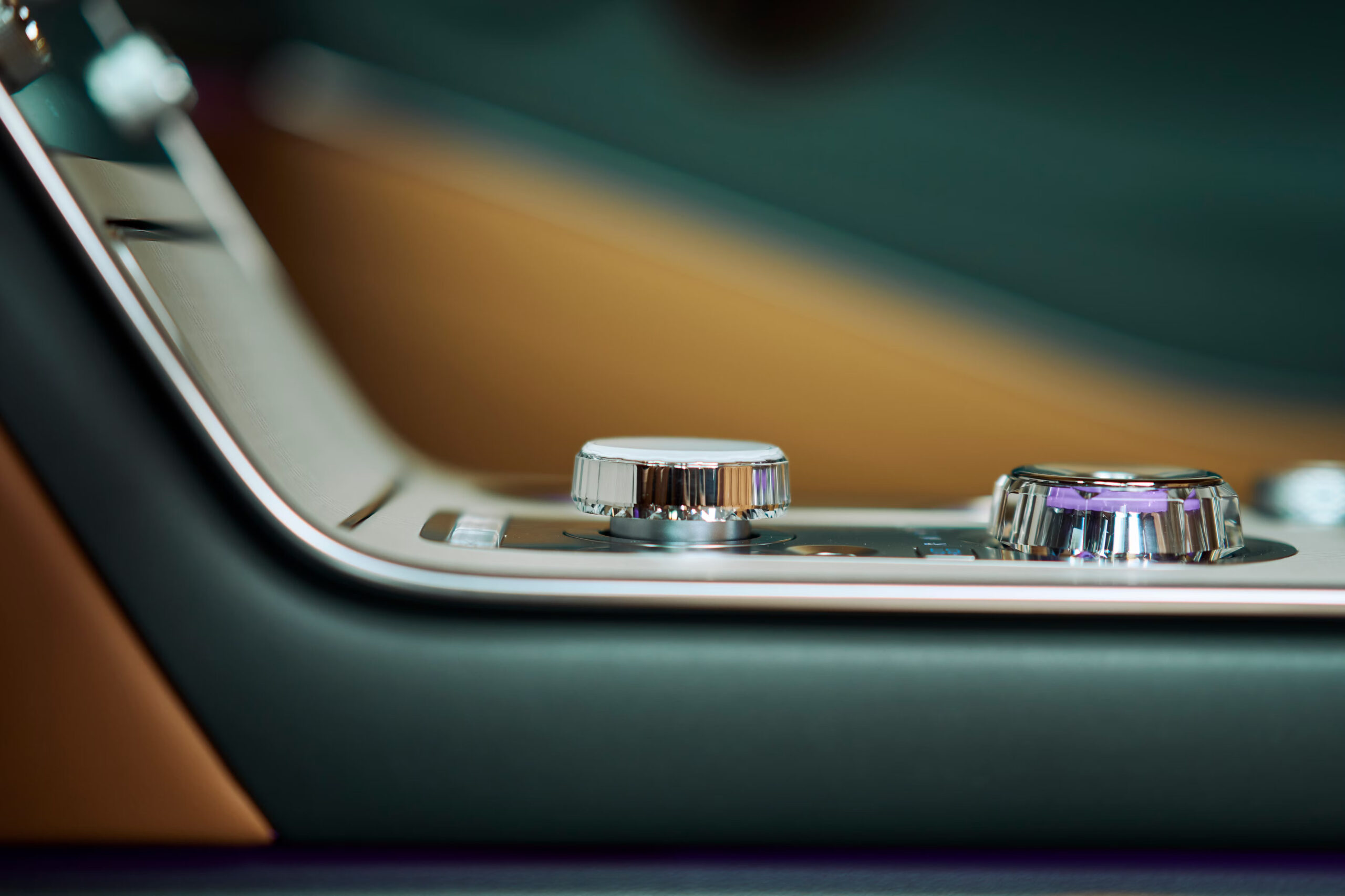
The integration of these innovative materials is not without its challenges. “Delivering these ideas to customers involves numerous tests and failures, which can be quite challenging for CMF designers,” said Kim. However, the rewards are significant, as these efforts result in the distinctive style and luxury that define Genesis.
Genesis’s innovative use of materials like newspaper wood and basalt fabric, coupled with its commitment to sustainability, positions the brand as a leader in the luxury automotive sector. By continually pushing the boundaries of design and environmental responsibility, Genesis is creating new value for its customers and setting a high standard for the industry.
Subscribe today for the freshest car news delivered to your inbox
